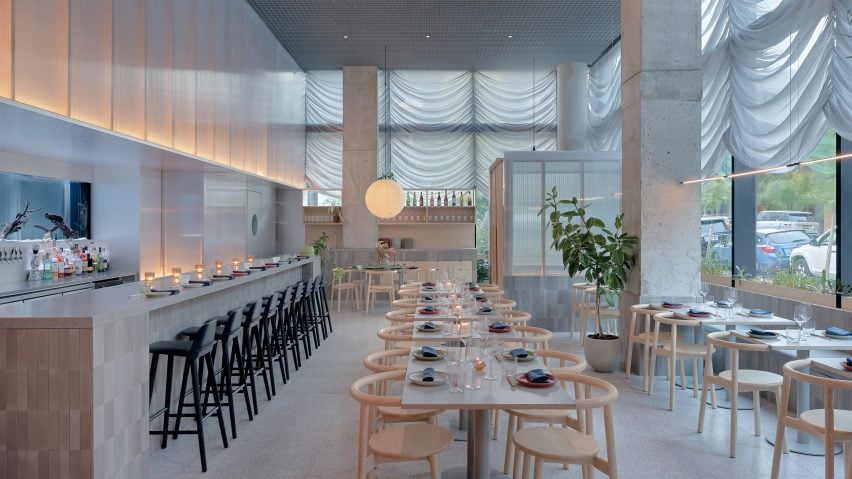
"Transparency is omnipresent" at Plan Plan's Brooklyn restaurant Nin Hao
Tall ceilings and large windows allow light to flood the interior of this Chinese restaurant in Brooklyn, designed by New York studio Plan Plan.
Serving Fujianese cuisine to the Prospect Heights community, Nin Hao occupies a space with generous 16-foot-high (4.9-metre) ceilings and large glass curtain walls on its south and east facades.
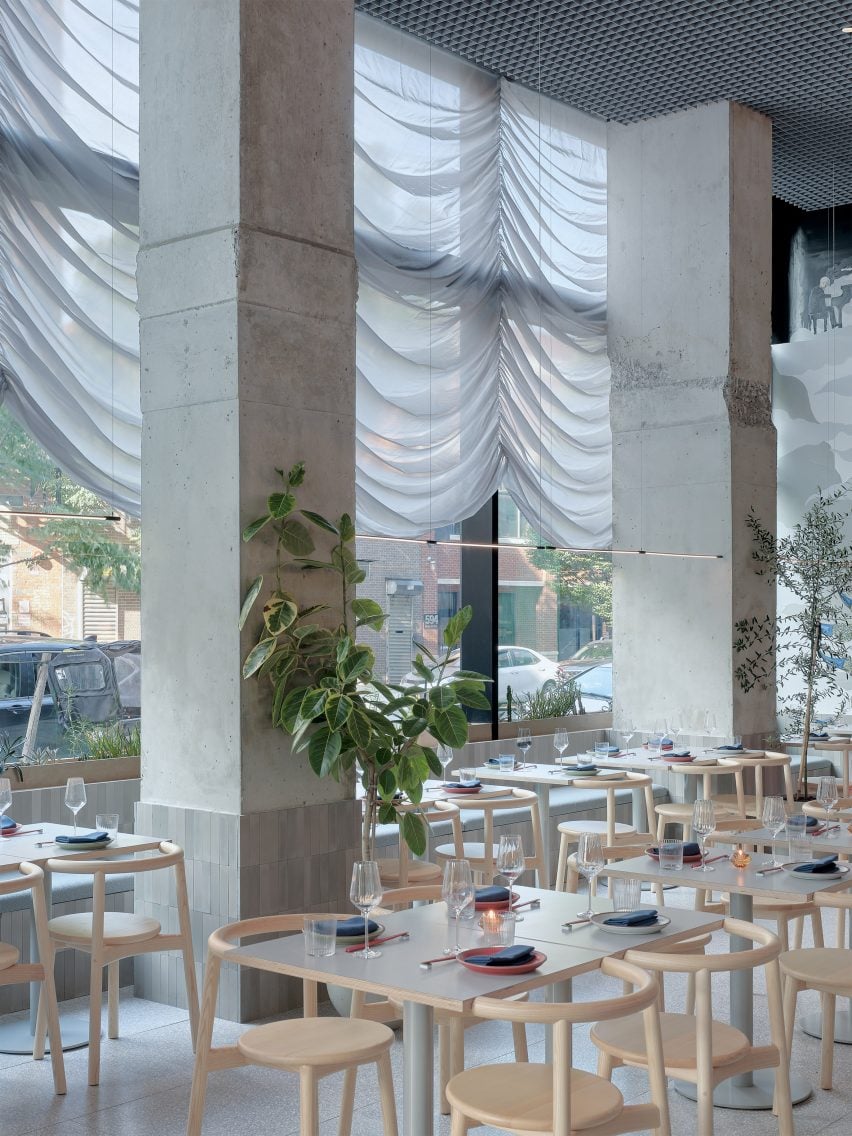
These expanses of glazing let in an abundance of sunlight, so "the sense of transparency is omnipresent in this space" according to Plan Plan.
The studio, which was known as CLAS until this year, added translucent Austrian curtains to soften the harsh light entering.
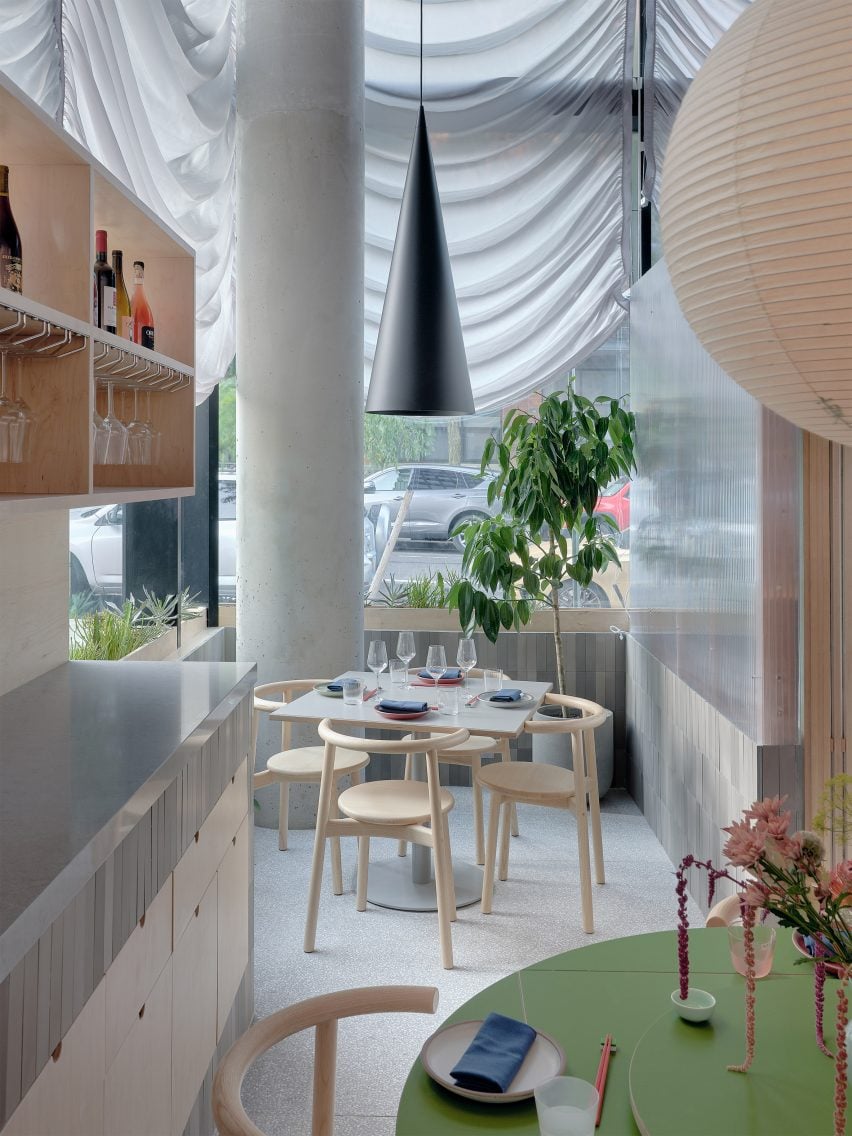
"This filtered light, in turn, reflects off the polycarbonate-panelled wall on the opposite side, diffusing throughout the space and contributing to an atmosphere that feels airy, bright, and ever-changing," said the team.
The layout is straightforward, with an open dining area facing the street filled with minimalist tables and pale wooden chairs.
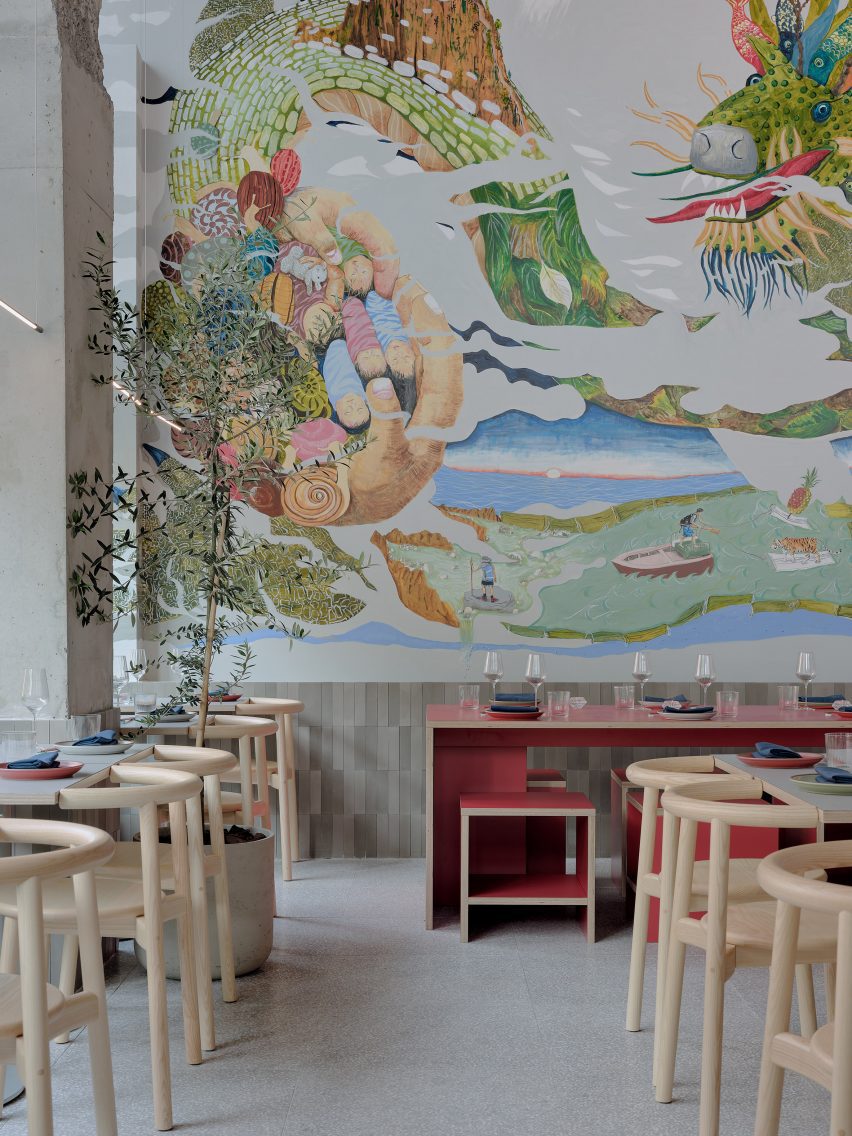
This space is separated from the back-of-house area by a long bar that runs along a central axis beneath the polycarbonate panels.
The counter front and other low partitions around the perimeter are wrapped in cement tiles designed to mimic traditional Chinese grey bricks.
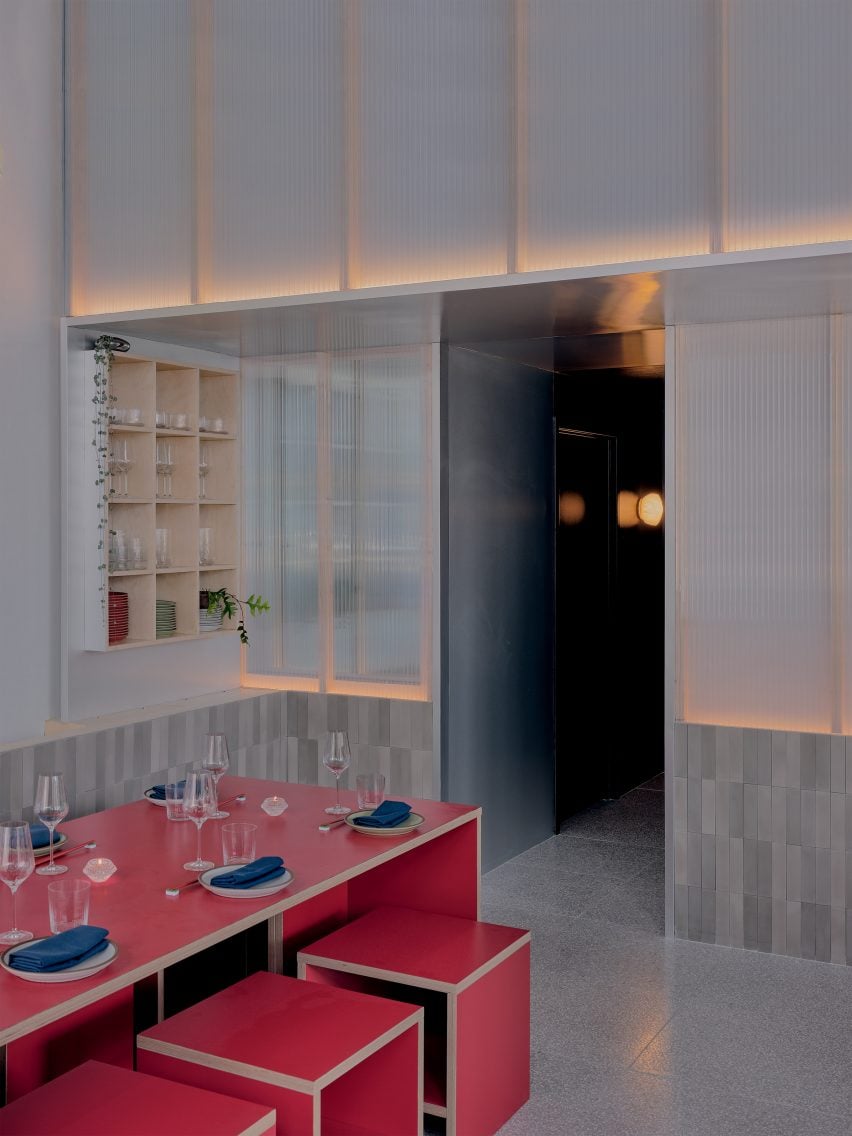
Thick exposed concrete columns rise to a metal grid ceiling, lending the interior an industrial look, and a large wall is left intentionally blank so that it can provide a canvas for a rotating series of artists.
Together, a spherical paper pendant, suspended linear fixtures, and cove lighting within the polycarbonate panels transform the restaurant into a glowing box at night,
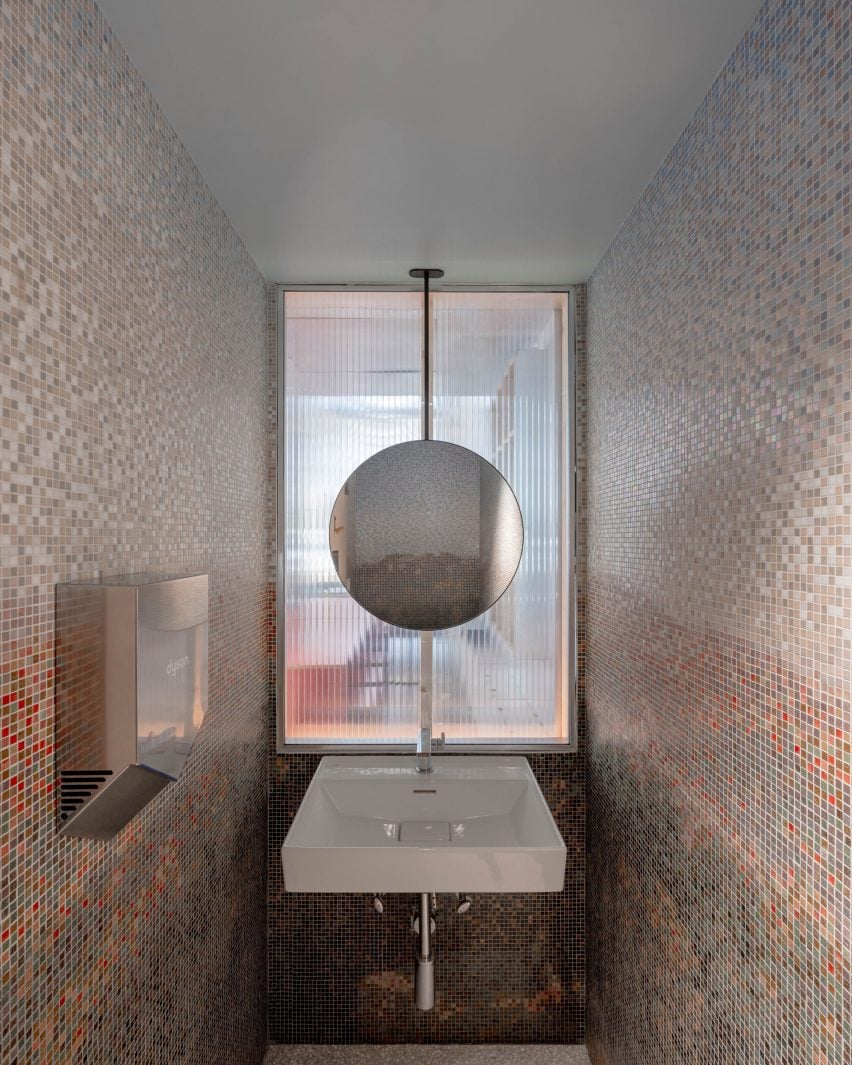
"Opaque and translucent, rough and sleek, traditional and contemporary, a series of contrasting pairs in dialogue echoes Nin Hao's ethos, which embraces its cultural roots while embodying a contemporary spirit and a well to adventure," said Plan Plan.
In the restaurant's two bathrooms, the studio took a different approach and modelled the spaces on iconic paintings.
The first is enveloped in mosaic tiles to resemble Spring Morning in the Han Palace by Qiu Ying, while the other's custom mosaic depicts the Hudson River Valley from Fort Putnam by George Henry Boughton.
One also features a two-way mirror that faces the dining area, "heightening the sense of surprise and adventure in the restaurant" according to Plan Plan.
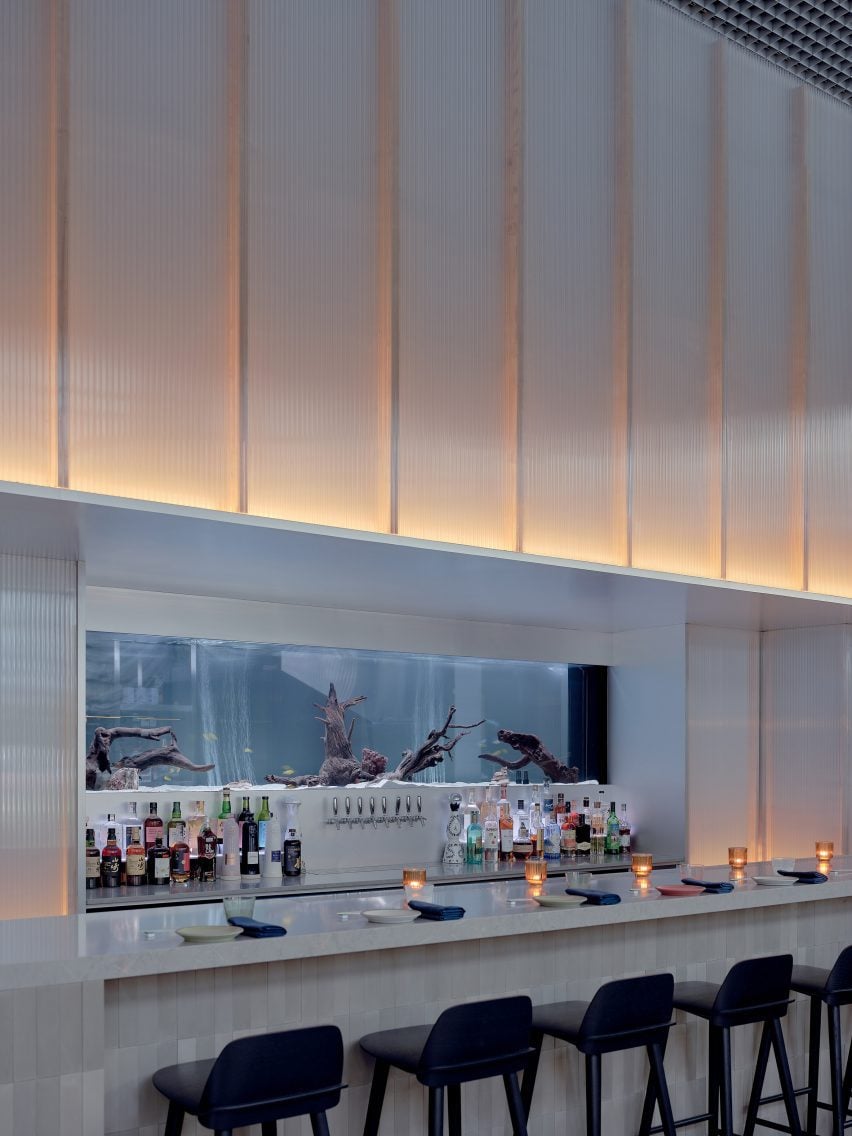
To encourage interaction between guests, Plan Plan also included a green-topped circular table with a rotating tray for playing mahjong and a long red table with matching stools for communal dining.
"Nin Hao wants to be a welcoming place for the local communities and people with different cultural backgrounds," said the studio. "With this spirit in mind, the dining space is also a canvas that invites engagement."
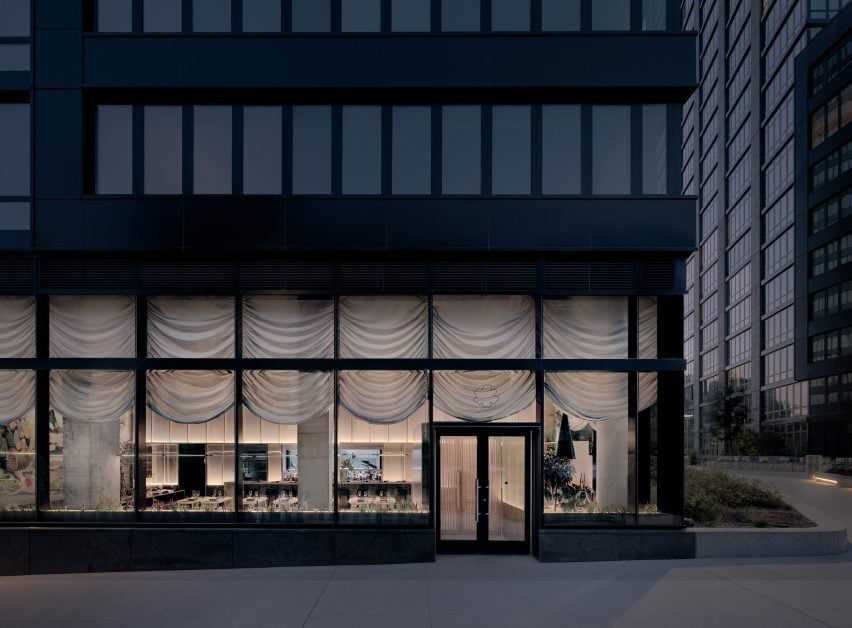
New York City has no shortage of Chinese restaurants, and many have inventive and unexpected interiors that enhance the experience for diners.
Examples include The Tang on the Upper West Side, which is lined with red herringbone brickwork, and nearby Atlas Kitchen where quirky illustrations line the walls.
The photography is by Sean Davidson.
Project credits:
Interior design: Plan Plan
Signage and graphic design: Yihuang Zhou, Yixuan Cao
Planting design: Livin
Furniture fabrication: Big Sin Wood